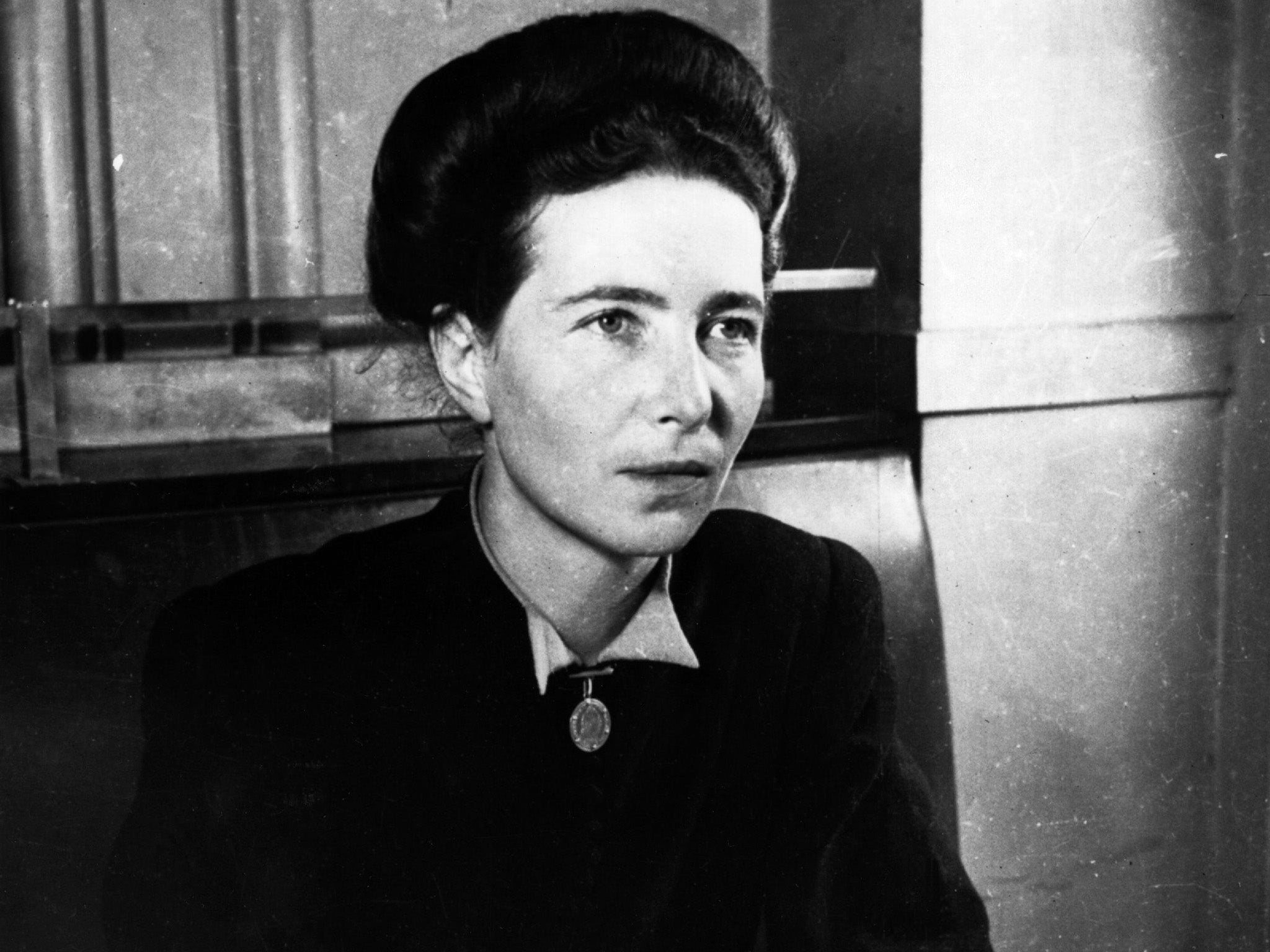Beauvoir, Sartre and the seduction of young schoolgirls
Simone de Beauvoir was teaching philosophy in Paris in 1943 when she was sacked for ‘behaviour leading to the debauching of a minor’. Andy Martin writes about a new book that confirms her passion for adolescent girls

The year is 1943. We are in occupied Paris. The Second World War is in full swing, even if the tide is turning. But war or no war, education in France remains a priority and French children are still going to school and taking their baccalaureat and (unlike in the UK and US) studying philosophy. And Simone de Beauvoir is still teaching them philosophy. Until, that is, she is sacked, for the offence of “excitation de mineure à la debauche” – behaviour leading to the debauching of a minor. De Beauvoir the debaucher.
It is a curious little-known episode amid the dark history of the occupation, of collaboration and resistance, and almost forgettable, except that I found myself constantly reminded of it in reading Beauvoir’s new novel, Inseparable. Beauvoir, author of The Second Sex, philosopher, memoirist, novelist, feminist, existentialist, died in 1986. But this is a novel – “novella” would be more accurate, amounting to around 30,000 words and a hundred or so pages – she wrote in 1954 but left unpublished in her lifetime.
I have to admit: I haven’t read the original Les Inséparables. But I have to give a shout-out to the translator, Sandra Smith, who makes it appear that Simone de Beauvoir wrote elegant, lyrical, passionate and lucid English. (The other translation currently out there is idiotically and impossibly entitled “The Inseparables”.) Inseparable tells the story of the love that the young narrator, Sylvie Lepage, has for another schoolgirl, Andrée Gallard. In her afterword, Beauvoir’s adopted daughter, Sylvie Le Bon de Beauvoir, reveals that the story is based on the adolescent crush that Beauvoir herself had on “Zaza”, Elisabeth Lecoin, whose death at the age of only 21 was a “catastrophe” for her. But the author’s dedication “to Zaza” gives most of it away: “If I have tears in my eyes tonight, is it because you have died, or rather because I’m the one who is still alive?”
Subscribe to Independent Premium to bookmark this article
Want to bookmark your favourite articles and stories to read or reference later? Start your Independent Premium subscription today.
Join our commenting forum
Join thought-provoking conversations, follow other Independent readers and see their replies